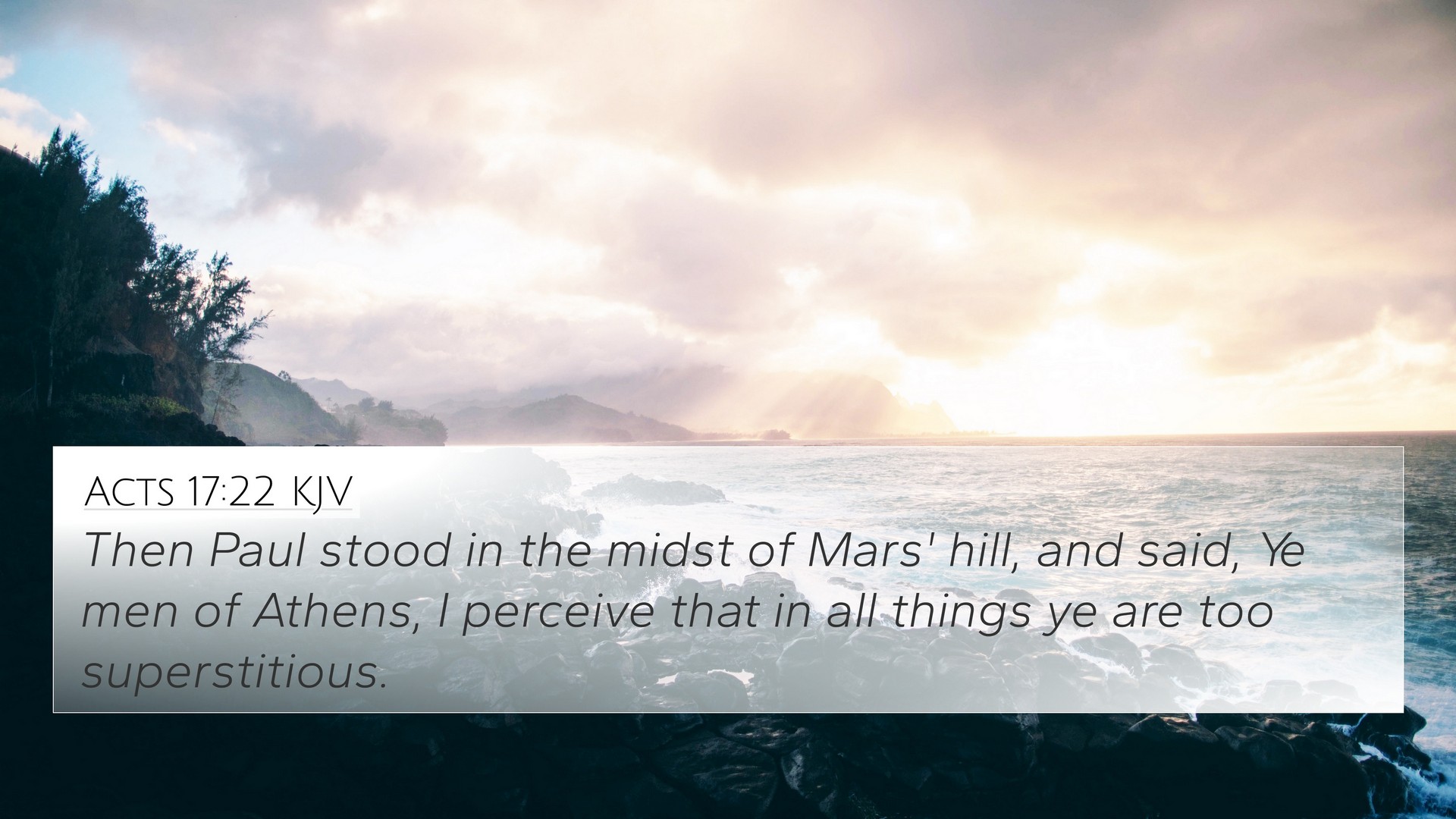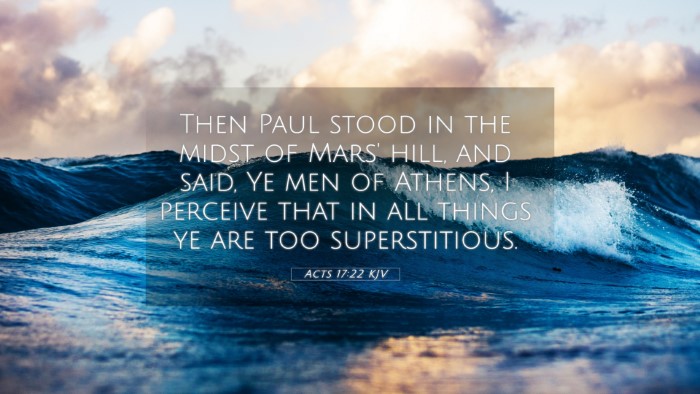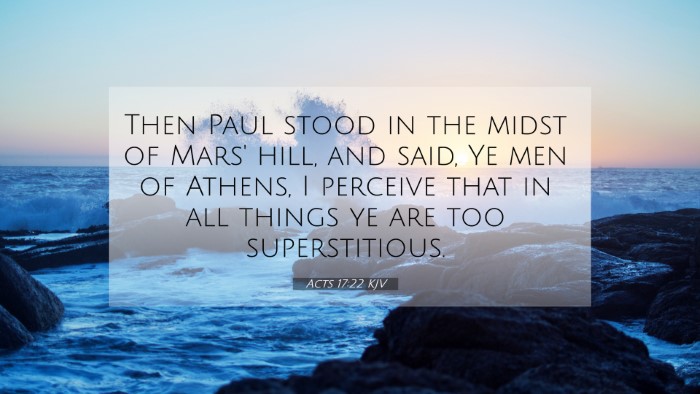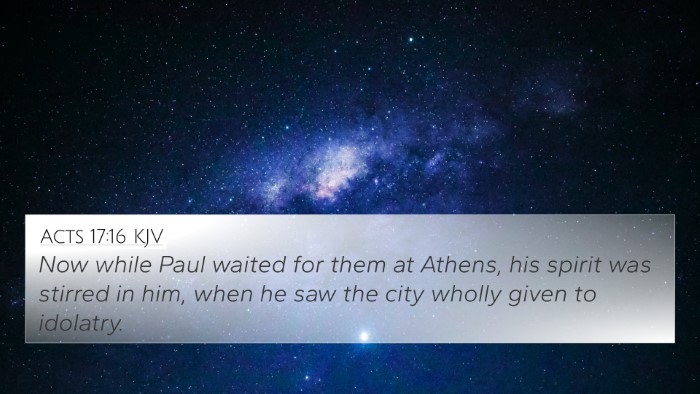Understanding Acts 17:22
Acts 17:22, where Paul addresses the Athenians, highlights the interplay between culture, philosophy, and faith. In his speech, Paul emphasizes the ignorance of the Athenians regarding the true God, prompting a deeper exploration of religious and philosophical thought.
Summary of Acts 17:22
In this verse, Paul is brought to the Areopagus, a prominent rocky outcrop in Athens, where he begins his address by acknowledging the Athenians' religiosity. He asserts that while they are zealous in their worship, they remain unaware of the true God whom they worship ignorantly. This sets the stage for his proclamation of the Christian faith, contrasting their polytheism with the monotheistic truth of Christianity.
Commentary Insights
-
Matthew Henry:
Henry emphasizes the condescension of God towards mankind, revealing Himself to those who seek Him. Paul’s approach to the Athenians demonstrates a method of engagement that respects their search for the divine, yet challenges their understanding.
-
Albert Barnes:
Barnes remarks on the irony of the Athenians’ ignorance despite their extensive philosophical pursuits. He points out that Paul’s address aims to enlighten them about the one true God, who is separate from their multitude of idols.
-
Adam Clarke:
Clarke notes that the phrase “I perceive that in all things you are very religious” suggests that the Athenians had a desire for spiritual truth. However, he warns that this does not equate to actual knowledge of God’s nature, which requires revelation.
Bible Verse Cross-References
Acts 17:22 can be cross-referenced with several other scriptures:
- Romans 1:20: Highlights God's revelation through nature, relating to ignorance of the true God.
- 1 Corinthians 8:4: Discusses the reality of idols, supporting the theme of Paul’s address regarding false worship.
- John 17:3: Defines eternal life as knowing the only true God, contrasting the Athenians’ ignorance.
- Psalm 14:1: Observations about fools says there is no God, reflective of the Athenian philosophical blindness.
- Isaiah 45:20: Calls the nations to recognize their misunderstanding of God, similar to Paul’s message to the Athenians.
- Colossians 2:8: Warns against philosophy that is not rooted in Christ, echoing the futility of Athenian thought.
- Acts 4:12: Affirms the exclusivity of salvation through Christ, initiating a dialogue with the worshippers of many gods.
Thematic Connections
The passage facilitates an enriching exploration of several overarching themes within the New Testament:
-
Search for Truth:
Paul engages with the Athenians’ quest for truth, a significant theme in both the Gospels and the Epistles, urging a movement from general spirituality to specific faith in Christ.
-
Engagement with Culture:
Paul’s methodology, adapting his message to His audience, serves as a framework for modern evangelism amidst diverse cultural beliefs.
-
God’s Sovereignty:
The acknowledgment of God’s control over all creation underscores the sovereign nature of God revealed throughout the Scriptures.
Inter-Biblical Dialogue
This verse contributes to a larger conversation about how believers interact with secular philosophies and religious beliefs. Paul’s discussion with the Athenians invites consideration of how the Church can effectively communicate the gospel amidst a plurality of beliefs.
Conclusion
Acts 17:22 is more than a historical account; it is a foundational element in understanding how Christians are called to engage with the world around them. Through cross-referencing this verse with others, one can retrace the thematic links that tie Scripture together, facilitating a more comprehensive understanding of God's message throughout the Bible.







